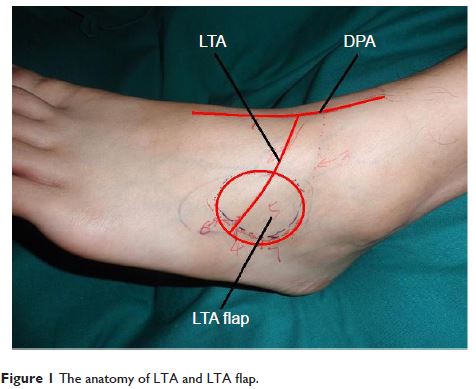109568
论文已发表
注册即可获取德孚的最新动态
IF 收录期刊
- 3.4 Breast Cancer (Dove Med Press)
- 3.2 Clin Epidemiol
- 2.6 Cancer Manag Res
- 2.9 Infect Drug Resist
- 3.7 Clin Interv Aging
- 5.1 Drug Des Dev Ther
- 3.1 Int J Chronic Obstr
- 6.6 Int J Nanomed
- 2.6 Int J Women's Health
- 2.9 Neuropsych Dis Treat
- 2.8 OncoTargets Ther
- 2.0 Patient Prefer Adher
- 2.2 Ther Clin Risk Manag
- 2.5 J Pain Res
- 3.0 Diabet Metab Synd Ob
- 3.2 Psychol Res Behav Ma
- 3.4 Nat Sci Sleep
- 1.8 Pharmgenomics Pers Med
- 2.0 Risk Manag Healthc Policy
- 4.1 J Inflamm Res
- 2.0 Int J Gen Med
- 3.4 J Hepatocell Carcinoma
- 3.0 J Asthma Allergy
- 2.2 Clin Cosmet Investig Dermatol
- 2.4 J Multidiscip Healthc

使用跗外侧动脉皮瓣修复遭受电伤的手指
Authors Zhang MH, Huang MT, Zhang PH, Liang PF, Ren LC, Zeng JZ, Zhou J, Liu X, Xie TH, Huang X
Received 6 January 2017
Accepted for publication 26 May 2017
Published 10 July 2017 Volume 2017:13 Pages 855—861
DOI https://doi.org/10.2147/TCRM.S131815
Checked for plagiarism Yes
Review by Single-blind
Peer reviewers approved by Dr Hoa Le
Peer reviewer comments 2
Editor who approved publication: Professor Deyun Wang
Objective: Electrical injuries to
the fingers account for the majority of total severe burns that occur each
year. While several types of flaps have been used in covering finger defects,
all have limitations or disadvantages. The purpose of this study was to
introduce our clinical experiences of using the lateral tarsal artery (LTA)
flap to successfully restore fingers after electrical injury.
Patients and methods: From 2005 to 2012, 10 patients with 14 severe
electrical burns to their fingers, including six thumbs and four index and four
middle fingers, were treated with LTA flap. The wound size ranged from 2.0×3.0 cm
to 3.5×5.0 cm. The flap with free tendon graft was used to repair the
tendon defect in four cases, free nerve graft was used to repair the feeling
defect in two cases, and the flap with nerve was used to repair the feeling
defect in two cases. All the patients were followed up for 3 months to
2 years.
Results: All skin flaps adhered successfully and there
were no complications. All patients were satisfied with the esthetic appearance
and functional outcome of the finger reconstruction.
Conclusion: LTA flap is a reliable method to restore fingers
after severe electrical injuries.
Keywords: electrical
injuries to fingers, lateral tarsal artery flap
